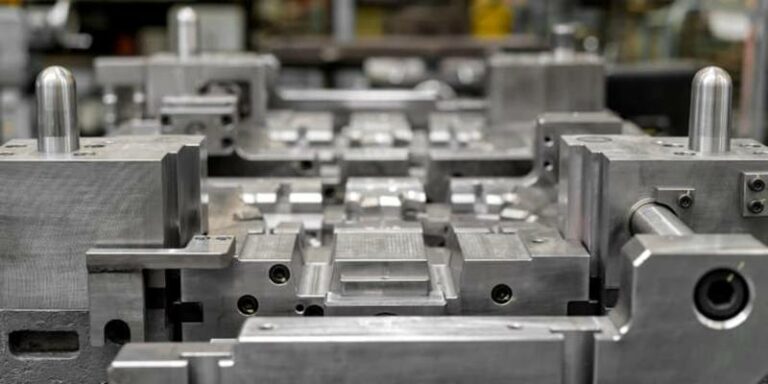All About Stahl Specialty Company
All About Stahl Specialty Company
Blog Article
The 8-Second Trick For Stahl Specialty Company
Table of ContentsNot known Facts About Stahl Specialty CompanyA Biased View of Stahl Specialty CompanyWhat Does Stahl Specialty Company Mean?Some Known Incorrect Statements About Stahl Specialty Company The 25-Second Trick For Stahl Specialty Company
The refined difference depends on the chemical material. Chemical Contrast of Cast Light weight aluminum Alloys Silicon promotes castability by lowering the alloy's melting temperature and enhancing fluidness during casting. It plays an essential role in allowing complex molds to be filled up properly. Additionally, silicon contributes to the alloy's stamina and use resistance, making it beneficial in applications where toughness is essential, such as vehicle components and engine elements.It also improves the machinability of the alloy, making it simpler to process right into completed products. In this way, iron adds to the general workability of light weight aluminum alloys.
Manganese adds to the toughness of light weight aluminum alloys and boosts workability. Magnesium is a light-weight component that provides strength and impact resistance to aluminum alloys.
It allows the production of light-weight components with outstanding mechanical properties. Zinc enhances the castability of light weight aluminum alloys and aids regulate the solidification procedure throughout spreading. It boosts the alloy's toughness and solidity. It is often found in applications where intricate forms and great information are required, such as ornamental spreadings and certain vehicle parts.
All About Stahl Specialty Company
Because aluminum-silicon alloys have excellent casting properties, high gas homes, basic procedures, and outstanding corrosion resistance, aluminum-silicon alloys are most commonly used in the die-casting industry at home and abroad. At the same time, aluminum-silicon alloys are also reasonably very early and extensively identified alloys developed and made use of in die-casting. After continual research and renovation, the majority of the existing global mainstream aluminum-silicon alloys have been wrapped up and are absolutely nothing greater than A356, A360, A380, ADC12, B390, and A413.
The key thermal conductivity, tensile strength, yield stamina, and prolongation vary. Select suitable basic materials according to the efficiency of the target item produced. Among the above alloys, A356 has the highest possible thermal conductivity, and A380 and ADC12 have the most affordable. The tensile limit is the opposite. A360 has the ideal return strength and the greatest prolongation price.

Little Known Questions About Stahl Specialty Company.
In precision spreading, 6063 is well-suited for applications where intricate geometries and top quality surface area finishes are critical. Examples consist of telecommunication rooms, where the alloy's remarkable formability enables sleek and visually pleasing layouts while maintaining architectural integrity. In the Lighting Solutions market, precision-cast 6063 parts create classy and efficient lighting fixtures that need complex forms and excellent thermal efficiency.
(https://sandbox.zenodo.org/records/180536)
The A360 displays premium prolongation, making it ideal for complicated and thin-walled parts. In precision casting applications, A360 is well-suited for industries such as Consumer Electronic Devices, Telecommunication, and Power Tools.

In precision spreading, aluminum 413 beams in the Consumer Electronic Devices and Power Tools markets. This alloy's exceptional deterioration resistance makes it an outstanding choice for exterior applications, ensuring lasting, sturdy products in the stated markets.
Rumored Buzz on Stahl Specialty Company
Once you have made a decision that the light weight aluminum die casting procedure appropriates for your project, a critical next action is selecting the most proper alloy. The light weight aluminum alloy you pick will considerably impact both the casting process and the properties of the last item. As a result of this, you must make your decision meticulously and take an informed strategy.
Establishing the most appropriate light weight aluminum alloy for your application will suggest evaluating a wide variety of characteristics. The very first category addresses alloy attributes that affect the manufacturing procedure.
The alloy you choose for die spreading straight impacts numerous aspects of the spreading procedure, like how very easy the alloy is to deal with and if it is vulnerable to casting problems. Warm fracturing, also referred to as solidification cracking, is a regular die casting problem for light official source weight aluminum alloys that can result in interior or surface-level rips or fractures.
4 Easy Facts About Stahl Specialty Company Shown
Specific aluminum alloys are a lot more at risk to hot fracturing than others, and your selection must consider this. Another common issue discovered in the die spreading of light weight aluminum is die soldering, which is when the actors stays with the die wall surfaces and makes ejection tough. It can damage both the cast and the die, so you need to look for alloys with high anti-soldering buildings.
Corrosion resistance, which is already a notable attribute of light weight aluminum, can vary significantly from alloy to alloy and is a necessary characteristic to consider depending on the ecological conditions your product will certainly be subjected to. Use resistance is another home frequently sought in aluminum products and can distinguish some alloys.
Report this page